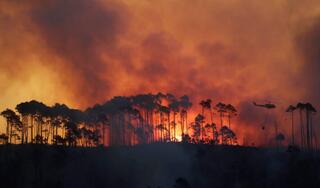This project has been brought to CR&DALL by Anna Wilson, who recently joined us from the University of Stirling. Two interconnected, mutually exacerbating global trends are putting an ever-increasing number of people at risk of environmental hazards or disasters: the climate crisis and increasing urbanization.
Climate impacts are already being felt by the millions of people living in informal and marginalized urban settlements, in the form of run-away fires, water scarcity and floods. These settlements, often comprising temporary dwellings and located on the fringes of the world’s major cities, within sight of the infrastructure and services they lack, may be particularly physically vulnerable to climate-related shocks and stresses. However, they are also sites of immense strength and ingenuity. There is much to be learned from them, both about how residents cope and adapt and how we might envisage changes in the future in other parts of the world.
The Water and Fire project funded through the Global Challenges Research Fund (GCRF) by the ESRC prioritises the voices and lived experiences of residents of three marginalised settlements in the Cape Flats region of South Africa. Between 2019 and 2022, the core team worked with community co-researchers and other residents in three areas of the Cape Flats that are already experiencing the impacts of global climate change on a daily basis: Delft (focusing on water scarcity), Overcome Heights (focusing on frequent fires) and Sweet Home Farm (focusing on recurrent flooding). Using a variety of creative methods, our co-researchers developed rich descriptions of their experiences of and responses to these hazards. These descriptions were then used to develop community-driven recommendations for resilience actions.
The project started in November 2019 and will end in March 2023. In the final phase of the project, we are combining these findings with engagement activities in the UK to create a context-sensitive framework for the development of community-driven responses to climate change. Its intial funding through GCRF was £899,545 and extension funding through GNCA (Stirling) was £25,798
The Co-I within CR&DALL is Dr Anna Wilson
PI: Derek McGhee, University of Stirling, Co-Is Gill Black and Leif Petersen, Sustainable Livelihoods Foundation, RSA, Jen Dickie and Niall Hamilton, University of Stirling, Kirsty Carden and Guy Lamb, University of Cape Town, RSA, Laurence Piper, University of Western Cape, RSA
More on the project can be found at this link.
Discussion topics:
- Log in to post comments














Latest Comments